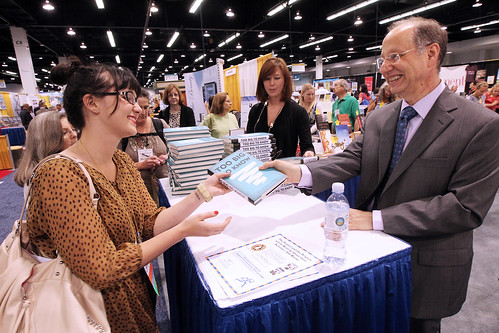Kierkegaard was born, raised, and lived all of his life in Copenhagen, Denmark. In fact, he only left the area five times his whole life.
His life was not a happy one. By the time he was 25, both of his parents and five of his six brothers and sisters had died. Later in life, he fell madly in love with Regina Olsen, and was engaged to marry her, but could not reconcile his troubled mind and heart, and so broke the engagement, despite his continued love for her, which lasted the rest of his life. Perhaps it was this grief of his young life, or perhaps it was the inherited depression and puritanical, pietistic Lutheranism of his father, but either way, Kierkegaard is known for his somewhat hopeless and less-than-encouraging writing (one of my professors often refers to him as "the melancholy Dane," a la
Hamlet). In a way, this inner turmoil and thoughtfulness is what led him to be considered the father of existentialism.
When applied to Christianity, Kierkegaard's analysis and criticism won't leave you singing "Victory in Jesus," but it is certainly challenging and edifying in its own way.
The two issues Kierkegaard is probably best known for are his criticism of "Christendom" and his three stages of existential being--the aesthetic, the ethical, and the religious.
In Kierkegaard's Denmark, basically everyone was nominally Christian. It was more or less a Christian state, and being a Christian or considering yourself a Christian was easy enough. But Kierkegaard knew that
real Christianity--
real faith--required much more than the simple coincidence of being born in Denmark. He understood that it took the acceptance of numerous paradoxes and an eventual leap to faith. This sometimes leads to him being considered a
fideist.
As a quick run-down, here are Kierkegaard's three stages of existence:
- The Aesthetic (the slave)--living for oneself
- The Ethical (the knight of infinite resignation)--living for the well-being of others
- The Religious (the knight of faith)--living for God
Please understand, this is so stripped down and I'm leaving so much out, but this post is already probably the longest I've ever written, so bear with me.
What you should read:
*Note: Kierkegaard wrote under many pseudonyms, and there is lots of scholarly work on why and how and the hierarchy between the personas. It's very interesting, and I encourage you to look into it!
Ratings:
(To read more about my rating system, click HERE.)
Gender Equality:  Kierkegaard's relationship with Regina Olsen is probably most telling for how he feels about women. In his writing, it never seems like she is a real person--just an object of his obsession and despair.
Environmental Sensibility:
Kierkegaard's relationship with Regina Olsen is probably most telling for how he feels about women. In his writing, it never seems like she is a real person--just an object of his obsession and despair.
Environmental Sensibility: 
I think Kierkegaard was far too concerned about himself and all the hypocrites around him to care much about the environment.
Heretical Tendencies:


He was a solid Lutheran, and had the guilt and shame to prove it. But one of his main goals was challenging the status quo of his society, and surely that shook things up a bit. I bet he would be very surprised to know there's a statue of him outside the huge Marble Church in Copenhagen. Ha!
General Badassery:


I'd say he was certainly an intellectual badass (his writings are no light reading), but other than that, he lived a pretty tame life, despite all his inner strife.
And a Kierkegaard quote:
"If I am capable of grasping God objectively, I do not believe, but precisely because I cannot do this I must believe."


























